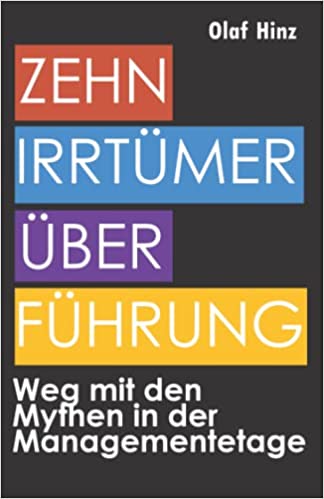Quo vadis, agile coaching?
- support the team in the (continued) development of an attitude that delivers functioning products in a binding manner and quickly adapts them to customer feedback,
- or ensure good working conditions (keyword: feel-good) as well as conflict-free cooperation and a good climate (keyword: happy team)?
Of course, both are important for productive work; some would even speak of two sides of the same coin. However, I fear that agile coaching is degenerating into feel-good management and my question is: Quo vadis, agile coaching?
Professional coaching and closeness to the client
I am regularly invited as a supervisor in groups of agile coaches and in recent months I have noticed a clear shift in the focus of the consultations towards feel-good management and happy teams.
Example: Some time ago I was involved in a discussion about a client and his excessive expectations. Yes, clients can be demanding. Yes, clients can present challenges to service providers. And yes, the client is not always automatically right. But the discussion reached its climax when more than three quarters of those present considered it right and professional to stand in solidarity with the team against the client and his “excessive” ideas. My ironically meant feedback that harmony in the team could of course best be created through a common image of the enemy was even misunderstood as valuable input. Obviously, I need to work on my irony…
Apart from the fact that effective coaches never lose their professional distance by showing solidarity, I find it distressing when the priorities of an agile coach are reversed. Coaching is the work of a professional stranger, as Michael H. Agar puts it in The Professional Stranger. An Informal Introduction to Ethnography² very aptly describes. It differs significantly from collegial helpfulness. In addition, agility focuses on delivery and customer needs, not on unanimity, good humour and fruit baskets.
What is effective agile coaching?
I have been involved in profession building in coaching for almost 20 years, I am even one of the early members at the Deutscher Bundesverband Coaching e.V.³ In my experience it is very important to live profession standards so that clients can trust the performance of coaches. To ensure that the value of agile coaching is not blurred and thinned out, I would like to see a discussion about the profession and what is effective agile coaching?
In my opinion, there are three different variants to approach an answer:
In the coach variant, it has its origins in the Anglo-Saxon understanding of a (sports) coach. Here, agile coaching assumes that there are proven methods that need to be used to achieve certain goals. The agile coach acts in a certain, predefined direction, e.g. the benchmarks of an industry such as Google, Tesla or Spotify, and concentrates with his support primarily on improving speed.
The consultant variant of agile coaching is more common in practice. Here, the focus is on teaching rules, (certified) standards and process models. The agile coach, who is often also a Scrum Master in the consultant variant, primarily ensures that the organisation adheres to the rules/model. Unfortunately, agility often degenerates into a bag of soup: you tear open the certified method bag, touch the saving tool according to the description on the back and if something doesn’t work, then the mindset is wrong. (Attention: Irony.)
In the facilitator variant, agile coaches support as companions, i.e. without a focus on benchmarks or certificates. With experience, a wealth of methods and a moderating approach, they help develop a mindset that focuses on deliverability and customer value and has little to do with feel-good management.
An essential prerequisite for agile coaching
I am convinced that more systems theory and less kitchen psychology is good for the effectiveness of agile coaches. Unfortunately, as described, I observe an ineffective overemphasis on the person and “fiddling around with the so-called mindset” while at the same time losing sight of the organisational purpose and the agile principles!
An important point in coaching is the work on (behavioural) alternatives in the concrete work context. Therefore, the focus is first on the context, the organisation and the structure in which a coaching concern is formulated. Smart employees align their behaviour with the policies and practices in their organisation; whether they are formal or only informally known. Typical examples of a formal nature are
- competency regulations,
- process descriptions and organisational manuals,
- organisational charts,
- but also principles of cooperation and leadership or corporate values.
It is these structures in the company that form the framework within which an agile team can and should act. Therefore, effective agile coaching must focus on these structures. Looking only at the person and their behaviour, which happens “detached” from the company, does not fulfil the expectations of professional agile coaching.
Simply put: It is the system that needs to be changed – not the personality! Professional coaching is based on recognising the integrity of all organisational members: people are complex and social beings with a psyche. When people act in organisations, they do so intentionally and meaningfully. They act on the basis of their perception or construction of perception, on the basis of beliefs, experiences, abilities and possibilities. Therefore, it is important to refrain from using tools and methods that are primarily used to instruct or try to steer people’s behaviour in directions. And recognising this is an essential prerequisite for agile coaching.
Notes:
[1] Principles in the Agile Manifesto
[2] Michael H. Agar: The Professional Stranger. An Informal Introduction to Ethnography.
[3] Deutscher Bundesverband Coaching e.V.
Olaf Hinz has published a book on Ten Misconceptions about Leadership (Zehn Irrtuemer über Fuehrung):
In this German book, which is well worth reading, he takes ten looks at the backstage, the invisible part of leadership, because leadership is not easy.
Olaf Hinz has published other articles in the t2informatik Blog:

Olaf Hinz
For almost 20 years, Olaf Hinz has been guiding managers, project managers and organisations in transition through troubled waters. He believes that resistance is a powerful signal, change is the rule, and sailing in sight is the appropriate response to the approaching VUCA weather. As a non-fiction author and speaker, the self-confessed Hanseatic citizen and former office manager of Peer Steinbrück is a sought-after source of inspiration at specialist conferences and bar camps.



